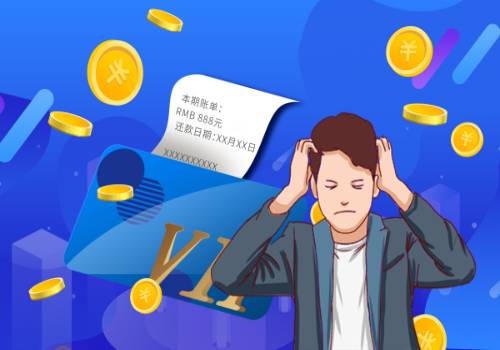Evil tactics to demonize fight against virus
Illustrated by China Daily
Because of the widespread increase in human activities in heretofore untouched places including natural environs and forests, epidemics caused by unknown viruses and bacteria have become more frequent in recent times. While swine flu broke out in North America in 2009, Middle East Respiratory Syndrome (also caused by a coronavirus) was diagnosed in 2012 and COVID-19 in 2019.
Confronted with such common threats to humankind, all countries should come together to neutralize the threat. However, when COVID-19 broke out, some politicians and media outlets in the West began acting selfishly, which was reflected in their denial of China"s contribution to the fight against the novel coronavirus.
 (资料图片)
(资料图片)
China immediately notified the World Health Organization and major countries including the US after the COVID-19 outbreak. It referred its genome sequencing results to the WHO on Jan 12, 2020, which became the key to comprehensively understanding the effects of viruses on humans.
During the first wave of the pandemic, the fatality rate was extremely high with no vaccine in sight. Under such circumstances, China locked down some cities to prevent the spread of the virus, and thus effectively controlled the pandemic. However, Europe and the US were slow to adopt the methods that had proven effective in China to contain the spread of the virus. Some countries didn"t even make wearing face masks in public places mandatory.
After containing the pandemic, China provided medical supplies and sent medical teams to other countries. Later, it shared the vaccines it developed with other countries and international organizations, in order to build a community with a shared future for mankind.
In contrast, the US was hoarding vaccines in large quantities at the time, which prompted the WHO to warn developed countries in January 2021 that stockpiling vaccines would cause a "catastrophic moral failure" to help other countries, especially the least-developed ones, contain the pandemic. For example, at a time when vaccines were hard to come by in developing countries, Canada had stockpiled vaccines more than five times its population, while the US destroyed millions of expired vaccines later because it could not use them.
Although vaccines are being administered globally since 2021, their effectiveness remains to be tested, because the Delta variant of the novel coronavirus had a high fatality rate despite the vaccination. In France, for instance, COVID-19 claimed about 64,000 lives in 2020 and 59,000 in 2021 separately. In the US, over 370,000 people died of COVID-19 in 2020 and more than 450,000 in 2021 separately — a total of more than 800,000 deaths with an average of more than 1,000 deaths a day.
Given the high death rate, China had no choice but to take strict prevention and control measures when the West decided that people would have to coexist with the virus.
In 2022, Omicron became the prevalent variant of the virus across the world, but its fatality rate was significantly lower because of widespread vaccination. At that time, however, no country could be certain about the impacts of the Omicron variant, with the European and American medical communities referring to the situation in South Africa to make an informed guess.
That"s why, despite having vaccinated more than 90 percent of its population, China persisted with a very cautious approach while closely observing the situations in other countries. It issued 20 new guidelines for easing the strict anti-pandemic restrictions on Nov 11 after determining that the vaccines are effective, and a 10-point plan on Dec 7 to optimize the COVID-19 response to further normalize the situation.
Globally, China may seem to be the last major country to ease restrictions, but it has done so just a few months later than other countries. Take the lifting of entry restrictions for example. Most countries removed restrictions in 2022. Japan, Spain, Syria all did so in October, that is, less than three months before China.
China"s anti-epidemic measures not only put people"s lives first but also strike a balance between pandemic-prevention and control and economic development. No wonder China is the only major economy to achieve positive growth in 2020, with its growth rate reaching 8.1 percent in 2021. And China"s growth rate is widely expected to top the world in 2023.
Yet the Western critics denies China"s valuable contributions to the global fight against the pandemic and the global human rights cause and, instead, claims that China has infringed on human rights and curbed people"s freedom.
They even questioned China"s "motive" for providing medical assistance and vaccine supplies for other countries, calling it "vaccine diplomacy" and geographical expansionism. That"s because those people in the West perceive China"s development and Chinese people"s yearning for a better life as a threat to the West.
But they cannot digest China"s economic success perhaps because China achieved the miracle without adhering to the Western development model and has thereby challenged the superiority of the Western model.
Over the past three years, China has fought the pandemic using a different anti-pandemic model and done better than the West in terms of protecting life and promoting economic development. This is something the West has apparently not been able to accept.
In short, at a time when humankind urgently needs all countries to join hands to overcome a common enemy, the US-led West has chosen to politicize the pandemic and stigmatize a country, and thus weakening the global fight against the virus.
Human beings will face similar challenges in the future, because a pandemic could break out in any country or region at any time. In order to more smoothly contain a pandemic in the future, the world needs to learn valuable lessons from the COVID-19 pandemic.
The author is a researcher at the China Institute, Fudan University. The views don"t necessarily represent those of China Daily.
-
 Evil tactics to demonize fight against virus IllustratedbyChinaDailyBecauseofthewidespreadincreaseinhumanactivities
Evil tactics to demonize fight against virus IllustratedbyChinaDailyBecauseofthewidespreadincreaseinhumanactivities -
 How will Beijing satisfy citizens' medical treatment needs? Currently,thefocusofChina sepidemicpreventionandcontroleffortsisonpr
How will Beijing satisfy citizens' medical treatment needs? Currently,thefocusofChina sepidemicpreventionandcontroleffortsisonpr -
 Foreign Ministry calls on US to share data [Photo VCG]ChinaurgedtheUnitedStatesonMondaytoshareitsepidemicinforma
Foreign Ministry calls on US to share data [Photo VCG]ChinaurgedtheUnitedStatesonMondaytoshareitsepidemicinforma -
 重磅微视频:警察荣誉 你常说“有困难,找警察”但我也不是钢铁之躯无坚不摧我也会害怕怕千钧一发时没有人能替你迎难而上,迎险而上我也会害怕怕我力量微薄不...
重磅微视频:警察荣誉 你常说“有困难,找警察”但我也不是钢铁之躯无坚不摧我也会害怕怕千钧一发时没有人能替你迎难而上,迎险而上我也会害怕怕我力量微薄不... -
 热头条丨《永远吹冲锋号》第四集《永远在路上》今晚播出 四集电视专题片《永远吹冲锋号》第四集《永远在路上》,将于1月10日在中央电视台综合频道晚8点档播出。党的二十大强调,腐败是危害党的生命力
热头条丨《永远吹冲锋号》第四集《永远在路上》今晚播出 四集电视专题片《永远吹冲锋号》第四集《永远在路上》,将于1月10日在中央电视台综合频道晚8点档播出。党的二十大强调,腐败是危害党的生命力 -
 微视频丨警旗下的你 重任在肩,使命在心;初心不改,步履不停。今天,是第三个中国人民警察节,在这个独属于人民警察的节日里,让我们把感谢送给无私奉献的...
微视频丨警旗下的你 重任在肩,使命在心;初心不改,步履不停。今天,是第三个中国人民警察节,在这个独属于人民警察的节日里,让我们把感谢送给无私奉献的... -
 “一条通往繁荣发展的铁路”(共创繁荣发展新时代)_天天快看点 “你好,朋友!”正在工地上忙碌的贝索·乌尔特克梅利泽头戴安全帽,身穿工作服,看到中国同事经过,用中文热情地打起招呼。乌尔特克梅...
“一条通往繁荣发展的铁路”(共创繁荣发展新时代)_天天快看点 “你好,朋友!”正在工地上忙碌的贝索·乌尔特克梅利泽头戴安全帽,身穿工作服,看到中国同事经过,用中文热情地打起招呼。乌尔特克梅... -
 《通胀削减法案》加剧美欧经贸分歧(经济透视) 近来,围绕美国《通胀削减法案》,美欧经贸分歧愈演愈烈,欧盟强烈谴责其为“贸易保护主义政策”。分歧的背后,既凸显双方产业结构性矛...
《通胀削减法案》加剧美欧经贸分歧(经济透视) 近来,围绕美国《通胀削减法案》,美欧经贸分歧愈演愈烈,欧盟强烈谴责其为“贸易保护主义政策”。分歧的背后,既凸显双方产业结构性矛... -
 拜登美墨边境之行所见皆“作秀” 移民沦为党争“棋子”-焦点消息 当地时间1月8日,美国总统拜登抵达美国南部得克萨斯州埃尔帕索附近的美墨边境地区进行视察,这是拜登上任以来首次视察美墨边境地区。在...
拜登美墨边境之行所见皆“作秀” 移民沦为党争“棋子”-焦点消息 当地时间1月8日,美国总统拜登抵达美国南部得克萨斯州埃尔帕索附近的美墨边境地区进行视察,这是拜登上任以来首次视察美墨边境地区。在... -
 【全球速看料】新冠患者就医保障更给力 日前,战略支援部队特色医学中心设立新冠病毒核酸检测阳性患者专病区,并抽调人员、设备,充实到重症监护室病房,加强对重症患者的诊疗...
【全球速看料】新冠患者就医保障更给力 日前,战略支援部队特色医学中心设立新冠病毒核酸检测阳性患者专病区,并抽调人员、设备,充实到重症监护室病房,加强对重症患者的诊疗...
热点
-
 动态焦点:定了!2023年度高明区十大民生实事出炉 佛山新闻网讯记者罗敏玲通讯员明任...
动态焦点:定了!2023年度高明区十大民生实事出炉 佛山新闻网讯记者罗敏玲通讯员明任... -
 中国人民警察节特别策划 我的神奇爸爸 在我们身边,有这样一群人,他们是...
中国人民警察节特别策划 我的神奇爸爸 在我们身边,有这样一群人,他们是... -
 电视专题片《永远吹冲锋号》第三集《铁规矩硬杠杠》 四集电视专题片《永远吹冲锋号》第...
电视专题片《永远吹冲锋号》第三集《铁规矩硬杠杠》 四集电视专题片《永远吹冲锋号》第... -
 禅城三个道路提升改造项目同期完工|全球观热点 佛山新闻网讯佛山日报记者周文琪报...
禅城三个道路提升改造项目同期完工|全球观热点 佛山新闻网讯佛山日报记者周文琪报...
文章排行
娱乐图赏
-
 环球今亮点!1月10日隆华新材发生1笔大宗交易 成交金额316.8万元 大宗交易成交价格10 56元,相对当...
环球今亮点!1月10日隆华新材发生1笔大宗交易 成交金额316.8万元 大宗交易成交价格10 56元,相对当... -
 翼龙贷逾期两万还不上会起诉吗 可能会。如果用户使用网贷消费之后...
翼龙贷逾期两万还不上会起诉吗 可能会。如果用户使用网贷消费之后... -
 去年卖地收入减少约3万亿!2023年“土地财政”将去往何处? 资讯 土地出让金从高峰的8 7万亿下降至...
去年卖地收入减少约3万亿!2023年“土地财政”将去往何处? 资讯 土地出让金从高峰的8 7万亿下降至... -
 要闻:德意志银行:将3M(MMM.N)目标价从127美元下调至120美元。 德意志银行:将3M(MMM N)目标价从...
要闻:德意志银行:将3M(MMM.N)目标价从127美元下调至120美元。 德意志银行:将3M(MMM N)目标价从...